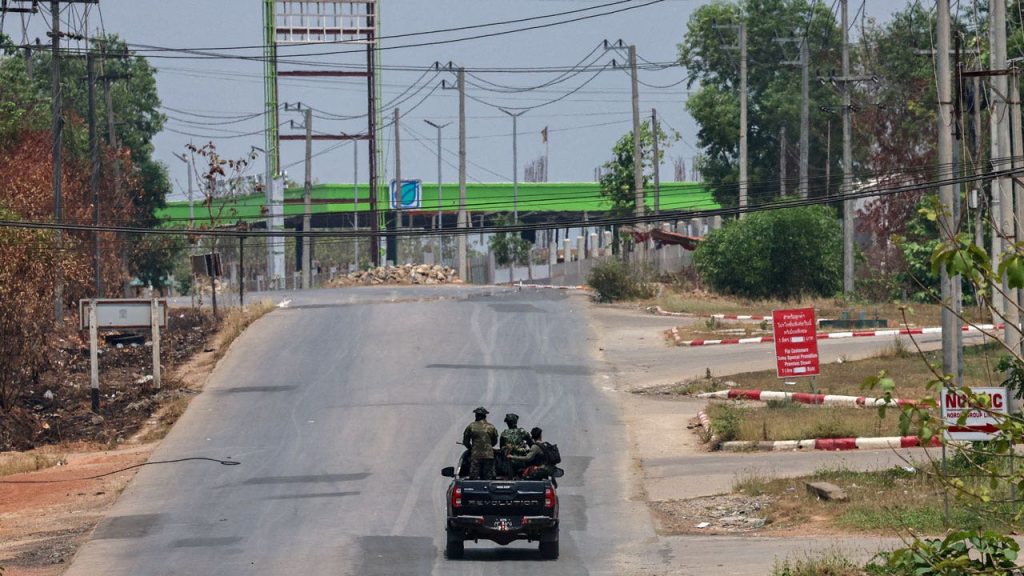In the jungles of southeastern Burma’s Dawna Hills, rebels from an armed ethnic group are striving to push back the country’s ruling junta in an attempt to reclaim Myawaddy, a critical trading post on the Thai border. The outcome of the conflict in the coming weeks will have a significant impact on the ongoing bloody conflict that has spanned over three years, with the fate of the junta hanging in the balance. Since a military coup in February 2021, an armed resistance has emerged, collaborating with ethnic minority rebel groups that have been fighting against the military for decades.
As rain-laden monsoon clouds approach Burma around early June, both the junta and the resistance are racing against time to make gains or maintain their territories. The upcoming battle for strategic locations such as Myawaddy and other vital trade and military outposts will be crucial, as they could shift the balance in the conflict. The military is facing challenges on multiple fronts, and the rebels are determined to maintain their momentum and potentially expand their control over key areas, according to experts.
The junta has suffered a series of battlefield defeats since October and is also grappling with economic challenges. They have lost control of numerous military positions and territories, with estimates suggesting that they could lose control of major borderlands with neighboring countries in the next six months, based on assessments by experts. Despite these setbacks, the junta still possesses firepower that could cause significant damage to resistance groups, although experts believe that their control is ultimately unsustainable in the long run.
Following the loss of Myawaddy, the military has launched a counter-offensive to recapture the town, which serves as a crucial trade route amounting to over $1 billion annually. The Karen National Union (KNU), one of Burma’s oldest ethnic armies, is engaged in fierce battles to defend Myawaddy against the junta’s assault. Meanwhile, further west, the junta is facing challenges from the Arakan Army, which is striving to seize control of Ann, a key regional military headquarters. The monsoon rains are expected to complicate the military’s operations, particularly hindering the use of air power, which typically provides an advantage for the junta.
Military defections and crumbling morale within the junta due to the lack of essential supplies have weakened their position, leading to a series of victories for the resistance forces. However, coordination among the diverse ethnic armies and grassroots resistance groups remains a challenge that could impact the outcome of the conflict in Burma. Facilitating strategic coordination among these groups will be crucial in determining the ultimate outcome of the conflict. Despite the junta currently retaining control over major cities in the heartland, their position is increasingly threatened, signaling a potential shift in power dynamics in the ongoing conflict.


